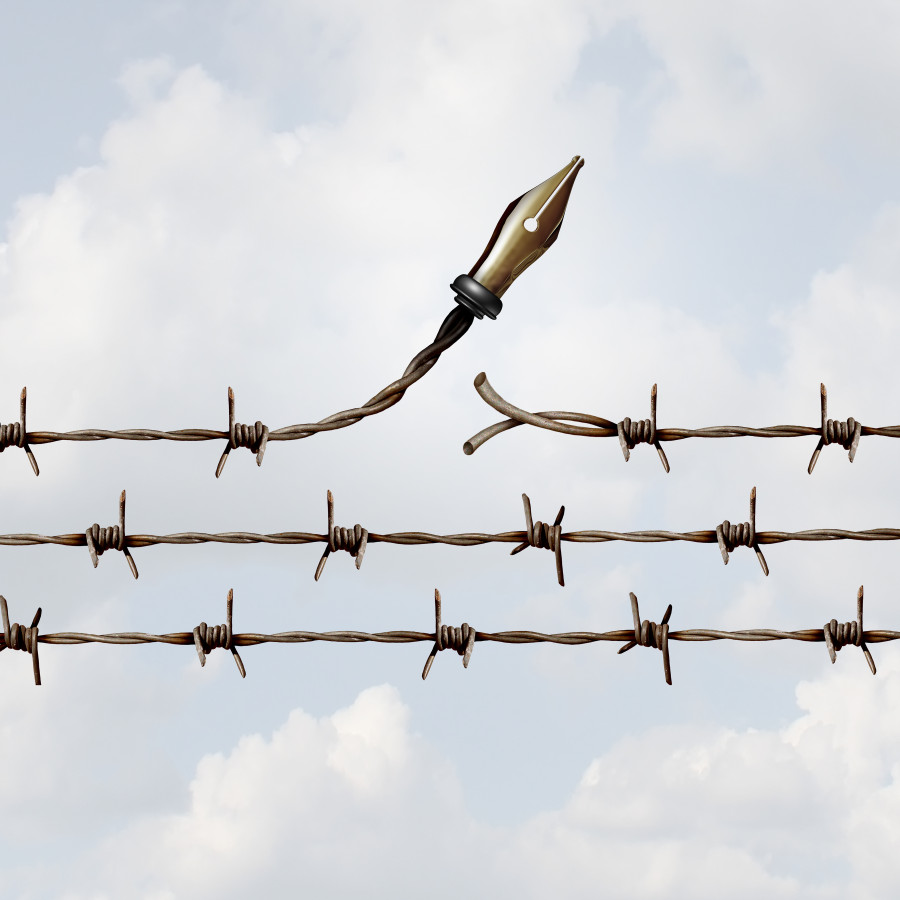Opinion
Media freedom protects and supports us all
Media freedom is a ‘canary in the mineshaft’—an early warning sign of deeper problems with a country’s democracy.
Richard Morris
Until 30 years ago, miners used to take canaries down into mineshafts to act as an early warning system for deadly gas. When the canaries were alive and well, the miners were safe. When the canaries went quiet or fainted, it was time to get out.
Media freedom is a ‘canary in the mineshaft’—an early warning sign of deeper problems with a country’s democracy. Today, on World Press Freedom Day, we should remember that media freedom isn’t just a symptom of a functioning democracy, it’s a core part of a free society. The press has an established role to hold the powerful to account, expose corruption and abuses, and to give a voice to the voiceless. A healthy, free press is one of the key checks and balances for any society that claims to be democratic. This right is protected by the International Covenant on Civil and Political Rights to which 172 states are party, including the United Kingdom and Nepal.
It’s a misconception that governments who are never criticised by the press are doing well. In fact, protecting the democratic space that allows for criticism is a sign of a healthy system. Robust reporting helps hold institutions to account, helping to protect consumers and improve public services for ordinary people. A press that publishes exclusively positive coverage about the government is beginning to wither—it should set off alarm bells for anyone that cares about media freedom.
As with so much else, the 2019 global situation for media freedom is complex, and becoming more so. The traditional challenges—anti-democratic governments, private sector influence, and censorship—have been complicated by the rise of social media and the subsequent fall in revenues for traditional outlets and increases in disinformation, spread by malign state and non-state actors. Neither the UK nor Nepal are immune to these challenges.
Nepal has enshrined press freedom in its constitution—a positive step that is not replicated in a number of other countries. And Nepal scores better than many of its South Asian neighbours in Reporters Without Borders’ latest press abuse report. But it is not shielded from the prevailing winds that are buffeting the rest of the world and there are worrying reports of journalists experiencing self-censorship, harassment, wrongful arrest and threats against their lives. The rise of unregulated online news portals and social network platforms makes it difficult for credible organisations to make their voices heard. Such a complex challenge requires a multi-faceted response: people from every sector of society need to engage with the issue.
The strength of a nation’s media freedom ultimately depends on the strength of its institutions: press regulators that respond quickly and transparently to complaints; courts that protect human rights; and governments that respect the right to free expression, even when that is critical. And, of course, journalists and media outlets have responsibilities too. Unethical or poorly-researched reporting damages the media’s wider reputation and strengthens those who want to cover up their wrongdoing. Editors chasing headlines, rather than substance to keep up with online news will find trust in their publications decreasing. Self-censorship and corruption strengthens the powerful interests that stand in the way of justice. More effective use of data, strong inculcation of press ethics during training, a diverse workforce and balanced reporting all helps ensure quality journalism in any country. And those journalists will, of course, need assistance in the form of skills provision, empowered institutions and robust protection of their own human rights. I sometimes hear that journalists stop themselves from publishing stories that would embarrass or upset powerful private sector influences for the understandable need to protect their future employment. This choice—between reporting the truth and having an income to support your family—is not one journalists should have to face.
The UK is taking a leading role globally in media freedom. The UK’s Foreign Secretary, Jeremy Hunt, recently announced that acclaimed human rights lawyer Amal Clooney will be the UK’s Special Envoy for Media Freedom, and that
Britain, along with the Government of Canada, will host a Media Freedom Conference in London later this year. In Nepal and elsewhere, we will continue to speak up for media freedom. I am always impressed by the work of organisations like Freedom Forum, the Federation of Nepali Journalists, and the Centre for Investigative Journalists Nepal, whose work to protect media freedom and expose abuses is so important.
We may not always like what is written in the media. But it is important to us all that quality journalism is allowed to flourish. The canary in the mine helps protect everyone.
HE Morris is the British ambassador to Nepal




 9.83°C Kathmandu
9.83°C Kathmandu










